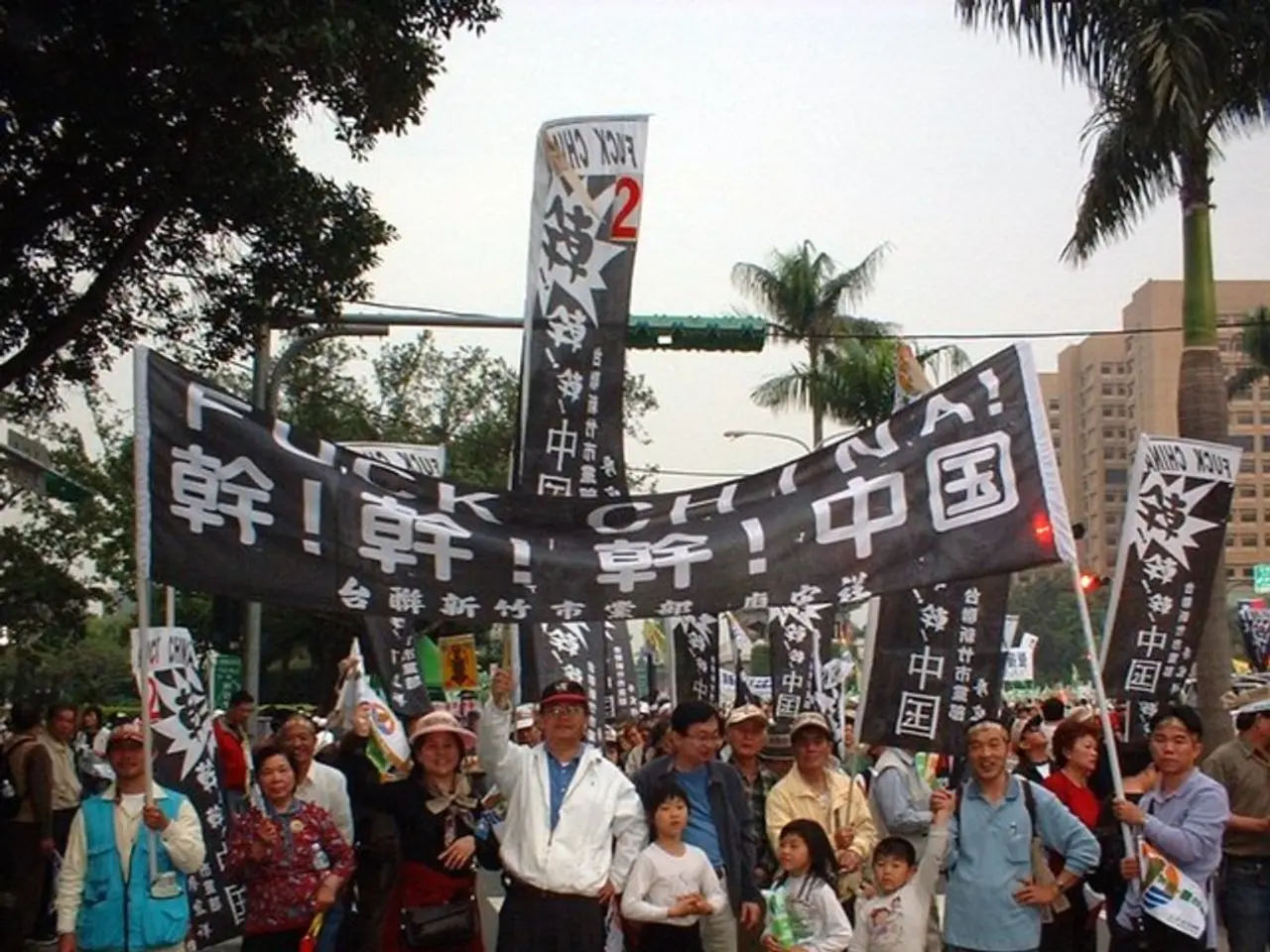Escalating conflict in Sudan has prompted the United Nations to announce a critical gender crisis, highlighting the disproportionate impact of the ongoing violence on women and girls.
The ongoing conflict in Sudan has plunged the nation into a severe humanitarian crisis, affecting over 30 million people who urgently need lifesaving aid, according to reports. More than 14.3 million people have been forced to flee their homes, with women and children making up the majority of those displaced.
The United Nations (UN) has declared a gender crisis in Sudan, highlighting the alarming conditions faced by Sudanese women and girls. The UN Women Representative in Sudan, Salvator Nkurunziza, stated that the current situation is a "gender emergency" caused by a failure of gender-responsive action.
The health system in Sudan is devastated, leading to widespread outbreaks of cholera, measles, and malnutrition, especially among children. Access to health services, particularly for maternal and reproductive care, is severely limited, putting the lives of pregnant women and their babies at risk.
Humanitarian convoys are frequently attacked, and aid workers are often targeted or caught in crossfire, hindering efforts to provide aid. Displaced women in refugee camps and temporary shelters face increased risks of exploitation, including assault, forced labor, and trafficking. Many organizations have been forced to scale back or suspend their operations, leaving vulnerable populations without critical support.
Widespread reports of sexual violence and exploitation have been documented in Sudan. Women and girls are subjected to rape, forced marriages, and trafficking. Amnesty International reports from the ground indicate that young girls are being coerced into sexual slavery by armed groups.
The prolonged conflict and siege of areas like El Fasher have trapped many women and children in dire conditions, with scarce food, health services, and protection. The situation has become a humanitarian emergency with lasting consequences.
International organisations, including UN Women, the International Rescue Committee (IRC), Women for Women International, Médecins Sans Frontières (MSF), and the Sudanese Organisation for Research and Development (SORD), are working tirelessly to provide aid and support to the displaced population. They emphasise the urgent need for targeted interventions to address the gender emergency and protect women and girls from violence.
UN research shows that when women are included in peace processes and political negotiations, the outcomes are more sustainable and inclusive. The UN calls for an end to hostilities and unimpeded humanitarian aid to alleviate the suffering of the Sudanese people.
In summary, Sudan is facing a catastrophic humanitarian and gender crisis characterized by mass displacement, extreme food insecurity, deteriorating health services, and widespread sexual violence against women and girls. Urgent international action is needed to mitigate these impacts and ensure the safety and wellbeing of the Sudanese people.
[1] UN Office for the Coordination of Humanitarian Affairs (OCHA) [2] UN Women [3] International Rescue Committee (IRC) [4] Médecins Sans Frontières (MSF) [5] Amnesty International [6] Sudanese Organisation for Research and Development (SORD)
- The conflict in Sudan has sparked a conversation about fashion's role in supporting the nation, with many designers emphasizing the need for style that reflects empowerment and hope.
- Beauty brands are also responding to the crisis, with some donating a portion of their sales to humanitarian aid organizations launched to assist Sudanese people.
- Celebrities have used their platforms to raise awareness and funds for Sudan's health and wellness initiatives, drawing attention to the need for medical treatments, therapies, and healthcare facilities.
- The importance of health in the Sudanese population extends beyond physical well-being, as mental health issues become increasingly prevalent due to the ongoing conflict and displacement.
- Fitness advocates call for prioritizing fitness and exercise as a means to improve overall health and boost immunity, especially in the context of respiratory conditions that can arise from living in unsanitary conditions.
- As the health system continues to struggle, focus on workplace-wellness programs becomes crucial, emphasizing the need for safe, clean, and supportive work environments in Sudan.
- In addressing medical conditions, attention must be paid to cancer, respiratory conditions, digestive health, eye health, and hearing, as these are health concerns that directly affect the quality of life for Sudanese people.
- Skin care, once neglected in the context of the current crisis, is gaining attention as a crucial aspect of personal health, with organizations offering educational resources and treatments for various skin conditions.
- The efforts to improve health and wellness also include sexual health, which has been severely impacted by the conflict, leaving many vulnerable to sexually transmitted diseases and unwanted pregnancies.
- Family health is of utmost importance, as parents face challenges in ensuring their children's health and well-being amidst the crisis.
- Autoimmune disorders, such as rheumatoid arthritis and multiple sclerosis, are becoming more prevalent in Sudan due to stressors related to the conflict.
- Climate change plays a role in exacerbating the humanitarian crisis in Sudan, as changes in weather patterns affect agriculture, water sources, and public health.
- Efforts to combat these issues involve manufacturing eco-friendly products and implementing sustainable practices in the fashion and beauty industries.
- The science behind these products and practices calls for collaboration between businesses, scientists, and policymakers to create solutions that are safe, effective, and environmentally friendly.
- In addition to healthcare and environmental concerns, the ongoing conflict in Sudan has significant impacts on the nation's economy, particularly in the finance and energy sectors.
- Sudan's economic instability has led to inflation, making it difficult for families to afford necessities such as food, medicine, and shelter.
- The banking and insurance sector is grappling with the challenges of providing financial services during a time of political unrest and economic uncertainty.
- As more people are displaced, there is a growing need for affordable housing solutions, leading to discussions about the state of the housing market and the role of venture capital in supporting housing development.
- The private equity industry is potentially positioned to play a significant role in revitalizing the Sudanese economy, with an emphasis on investing in small businesses and entrepreneurial ventures that contribute to economic growth.
- Politics and leadership are closely tied to the current crisis, as policymakers and government officials navigate the complexities of the conflict and the humanitarian response.
- The role of diversity and inclusion in this context is crucial, as the advancement of women and marginalized communities can drive more effective and sustainable solutions.
- The automotive industry is also affected by the crisis, as displaced people rely on private and public transportation to access essential services and resources.
- The transportation sector as a whole, including aviation and public transit, are key factors in the mobility and accessibility of Sudanese people amidst the crisis.
- Efforts to alleviate the crisis must address the interconnected nature of issues, from health and wellness to finance, energy, and transportation.
- Environment-focused organizations and researchers emphasize the importance of addressing environmental science and climate-change mitigation strategies as part of a comprehensive solution for Sudan.
- Additionally, cannabidiol (CBD) products, derived from the cannabis plant, are being explored for their potential therapeutic benefits in managing symptoms of neurological disorders, such as epilepsy and multiple sclerosis.
- The effects of the crisis have also impacted the retail sector, as many businesses struggle to maintain operations during the ongoing conflict.
- The situation raises questions about the role of the government in providing support for small businesses and ensuring economic stability in the midst of the crisis.
- As the crisis continues, there is growing concern about the long-term impacts on Sudan's population, including the effects on general news, crime and justice, war and conflicts, and the overall stability of the nation.
- Lastly, the conflict in Sudan showcases the importance of addressing mental health in the humanitarian response to conflicts, as the psychological impact of the crisis is felt far and wide.
- In order to effectively address the crisis and ensure the long-term well-being of the Sudanese people, a collaborative, multidisciplinary approach is essential, involving organizations, policymakers, and individuals from various sectors united in their commitment to empowerment, compassion, and progress.








